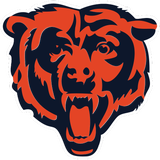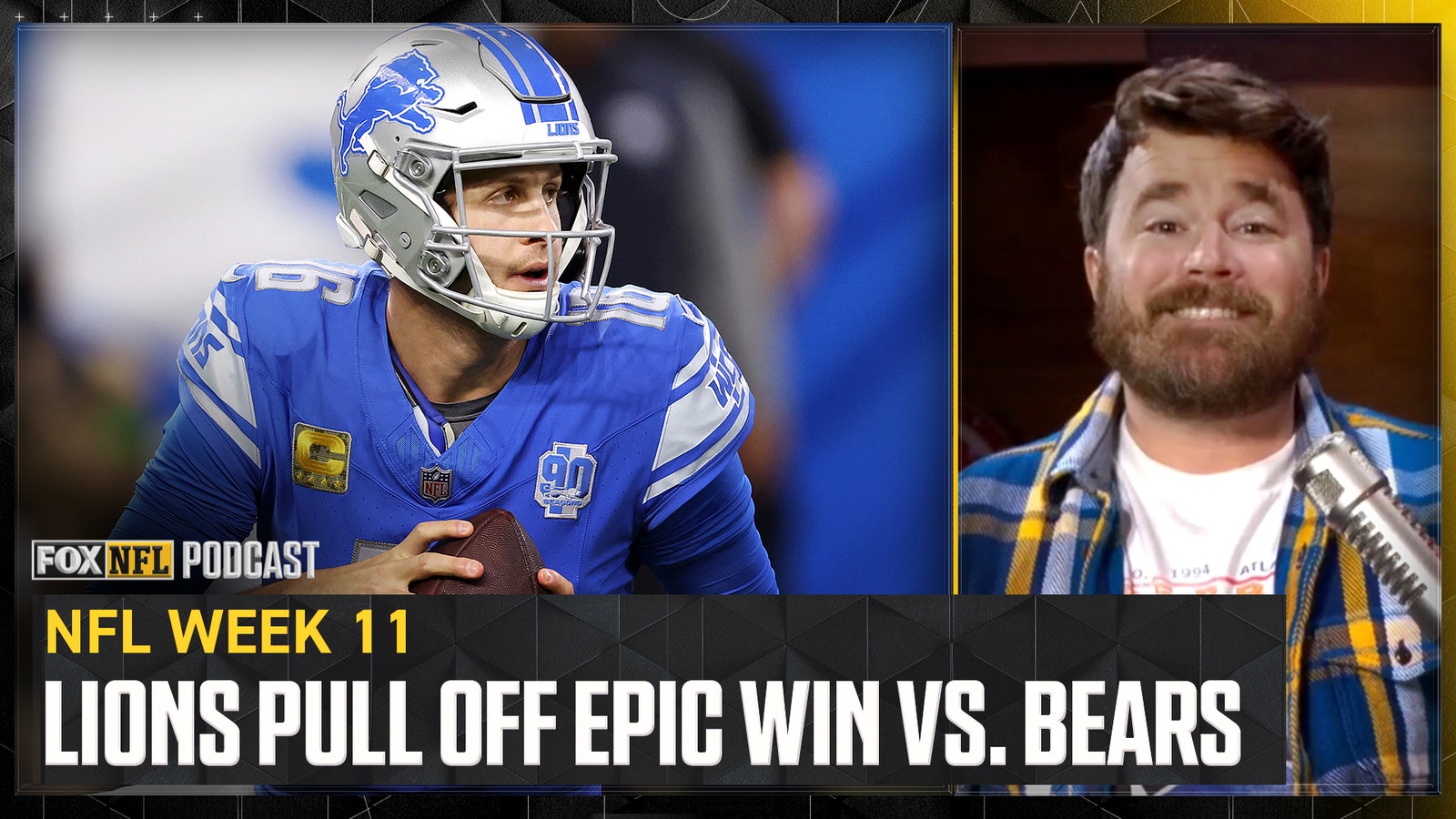
Why were Bears' Tremaine Edmunds, Montez Sweat limited on pivotal drive?
Quarterback Justin Fields isn't the only one auditioning for his future in Chicago. Head coach Matt Eberflus is, too.
Coming off a last-minute loss in Detroit on Sunday, in which the Bears led by two scores with four minutes left in the game, plenty of questions are being raised about Eberflus' defensive play calling.
On the Lions' go-ahead scoring drive, splashy trade-deadline acquisition Montez Sweat missed three plays out of 11. Splashy offseason signing Tremaine Edmunds wasn't on the field at all.
In such a critical situation, why were the team's best defensive players absent?
Eberflus offered somewhat of an explanation on Wednesday.
"[Edmunds] was on a pitch count," he said.
Chicago's middle linebacker had only practiced once the week prior, nursing a knee injury that had kept him out since October 29. He was easing back into his role and the Bears didn't want to put too much strain on him and risk reinjury.
"Of course, the coaches want to put them in there and have no rotation. Just play," said Eberflus. "Well, it doesn't work that way. We're dealing with human beings and they're coming off injury and their endurance isn't sometimes where it needs to be. They need to get back in game shape, so to speak. You have to have that balance. You have to meet with our performance staff, our training staff, which they do an excellent job of getting guys back. We just have to listen to their feedback. And then really talking to the player, where he is with the feedback."
Sweat's three-play absence was then attributed to the outside edge rotation.
"We want him out there more but those guys are rotating," said Eberflus. "[Defensive line coach] Travis [Smith] rotates them in and out. Usually, there are five to seven plays — somewhere in there – during the two-minute drive like that."
Sweat was in for the first five plays. He came out for the next three as the Lions got into the red zone. He then went back in after Detroit got inside the 10. It's also worth noting that the Lions were in their two-minute, hurry-up offense. That doesn't leave a lot of time for substitutions. Teams do that on purpose for the very reason that they don't want the defense to sub in different players.
That allows the offense to limit the amount of plays the defense can run against them — which makes them more predictable and easier to beat — and also tires defenders out as much as possible. Keeping players fresh, especially along the defensive line, is paramount.
And while it sounds like the rotation is dictated by Smith from the above quote, Eberflus also said the player has autonomy in those situations, too.
"These are pro athletes and they've played a lot of football," he said. "You leave it to him when he's exhausted, needs to take a play or two, you let him do it. Then get back in there as fast as you can. When there's a stoppage in play, you get back in there. I think that's best practice."
In a vacuum, this all sounds normal. Running straight into some of the biggest humans on planet earth to get to the quarterback play after play is grueling. Of course, players need a break. But context is important.
The Bears offense had the ball for over 40 minutes against the Lions on Sunday. That means the defense was only on the field for 19 minutes and 36 seconds. They took a total of 62 snaps. That was 13 fewer snaps than the offense took. Sweat, in his third game with Chicago, played just 39 snaps — 63%. That was 10% less than Yannick Ngakoue.
I get that Sweat is still relatively new, but it isn't as if he was signed off the street. Sweat played 69% of Washington's defensive snaps prior to arriving in Chicago. On a line with All-Pro players, Sweat also didn't have to be ‘the guy'. He was brought in by the Bears to be their top pass rusher. That should mean an increased workload, not a 2% drop.
"Of course we want him in there on critical downs, third downs, two-minute all those types of things and he will be," said Eberflus. "You always want your best players playing more in those critical moments."
So, again, why wasn't he?
Instead, Ngakoue had Rasheem Green on the other side of him for three plays. Under any other circumstance, that is totally acceptable. Your guys need to rotate to stay fresh.
The same goes for Edmunds. He was coming off an injury but he played 41 snaps, which isn't a taxing workload comparatively. He plays 100% of the team's defensive snaps most games, which varies anywhere from 50-70 plays.
If you're paying any attention to the flow of the game or the down, distance or situation — which Eberflus said goes into the rotational decisions _ you should be able to call on your best players when the game is on the line. What's more, you shouldn't take them out. Most players want to be on the field for those situations, not standing on the sidelines.
Attributing all of this to a rotation is too simplistic. You can't live and die by a rigid snap count. Whether it's the coaching staff lacking situational awareness or the players not being well conditioned enough/lacking the desire to stay on the field, it doesn't look good. Eberflus is accountable for the defense above all else and that will undoubtedly go into his end-of-year evaluation and future in Chicago.
Carmen Vitali covers the NFC North for FOX Sports. Carmen had previous stops with The Draft Network and the Tampa Bay Buccaneers. She spent six seasons with the Bucs, including 2020, which added the title of Super Bowl Champion (and boat-parade participant) to her résumé. You can follow Carmen on Twitter at @CarmieV.












